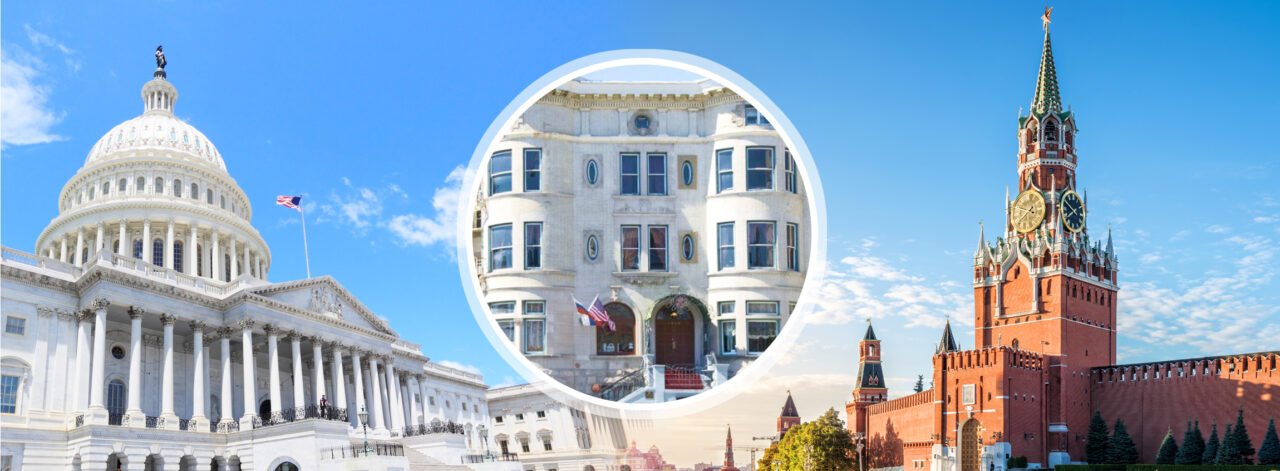
Mary Dejevsky
.
With EU-UK relations now approaching the countdown to Brexit, the UK risks being left stranded between the sides of the Atlantic, doggedly pursuing an ultra-hardline policy towards Russia all by itself
However sceptical you might be about the UK government's case against Russia over the Skripals' poisoning, the diplomatic damage is clear for all to see. Following the prime minister's statement in the House of Commons this week and the naming of two Russian suspects, relations between our two countries are now even worse than when Theresa May gave her initial statement pinning the blame on Russia. Short of severing diplomatic ties altogether, it is hard to imagine how much worse relations could be.
Two points stood out from May's latest statement that illustrate how bad things are. The first was the utter certainty with which she insisted on Russia's guilt. The other was the prominent part played by intelligence information - undisclosed, of course - in linking the two suspects to the Russian military intelligence service (the GRU) and from there to the Kremlin.
There was a brief nod to the idea that the UK has no quarrel with "the Russian people", but otherwise, the burden of her statement was that relations would get even worse, as she rehearsed the usual string of complaints against Russia for its "behaviour" and set out the further action that the UK would take.
It would not try to extradite the two suspects - there, at least, something has been learned from the Litvinenko case, when the Russian authorities ran rings around the British, whose vain pursuit of the two chief suspects elevated them to stardom in their home country.
But it would make the two suspects liable to arrest in Europe and in countries signed up to Interpol. And it had called a session of the UN Security Council, and would seek additional measures through other international organisations - most of these measures, it has to be said, related to Russian badness generally, rather than to the Salisbury case in particular.
It is understandable that the UK would try to work through international organisations, rather than bilaterally, given the lamentable failure of this approach in the Litvinenko case. There might also be the hope of reproducing what was seen as something of a diplomatic coup for the Foreign Office in persuading 28 countries to agree to joint action, including the expulsion of Russian diplomats, very soon after the attack on the Skripals. But it is not at all evident that the necessary support will be forthcoming this time around.
It has been apparent for a while that some EU countries have become unhappy about the lack of additional evidence, including intelligence information, supplied by the British to support their accusations. What is more, the particular claim that only Russia had the access to the novichok nerve agent has been discredited, with both Germany and the Czech Republic confirmed to have had the capability, and even scientists at the UK's defence laboratory, Porton Down, saying that they could not establish the poison's provenance.
It is possible that this week's release by the police of CCTV footage and the naming of suspects - or at least the release of their presumed aliases - will quieten some international misgivings. But it is hard to see what more action can be taken. Further diplomatic expulsions look doubtful; some countries were reluctant to join in last time around, expelling only a token one or two, while others - it is thought - may have seized the opportunity to boot out suspected spies using the Skripal affair as a convenient pretext.
And while Theresa May said in her statement that the UK would argue for imposing further sanctions - as the US is in the process of doing - this may be difficult. For a start, sanctions are something the EU has to agree as a bloc, so the UK cannot act unilaterally. But a consensus may also be more difficult to achieve than it was. European solidarity on isolating Russia is not what it was, with some arguing that even existing sanctions, imposed over Moscow's annexation of Crimea, are doing more harm to other EU countries than to Russia.
Thus we have the strange situation where the US is actually imposing more sanctions against Russia because of the Skripal case than either the UK or the EU. Nor are the US sanctions connected to any new evidence about Salisbury; while it has suited Washington to present them as the US getting tough on Russia, they are actually triggered automatically by the chemical weapons aspect of the attack. These sanctions are less new than a result of procedural wheels turning.
In the absence of new sanctions or diplomatic expulsions, the UK might hope for a general cold-shouldering of Russia internationally. But this is not happening either. US policy towards Russia remains hard to fathom, with the president and the Washington establishment seemingly on opposite sides. On the one hand, the US says (not without reason) that the Trump administration has been tougher on Russia than its predecessors. A lot seems to be happening bilaterally behind the scenes - on Syria, arms control and cyber issues.
Meanwhile - with the US deemed a less reliable ally in Europe - Germany, France and Austria have all started to mend fences with Russia. Putin has been in Austria twice in recent months; he held talks with Angela Merkel outside Berlin last month, and Macron met Putin when he was in Moscow for the final of the World Cup final.
With EU-UK relations now approaching the countdown to Brexit, the UK risks being left stranded between the sides of the Atlantic, doggedly pursuing an ultra-hardline policy towards Russia all by itself. Nor, despite some initial success for the UK in strengthening the regime at the chemical weapons watchdog, the OPCW, do broader international organisations necessarily offer any better prospect of support, given that Russia has a veto in the UN Security Council.
There may also be another weak link for the UK government in its hope of escalating action against Russia - and this is domestic opinion. While the atmosphere in parliament for the prime minister's two statements on the Salisbury attack has been fervently united against Russia, and much of the mainstream media has backed this, the official version of what happened is not universally accepted.
Comments on phone-ins and social media, and the positive experience of football fans at the World Cup, may all have contributed to the slightly defensive tone of May's latest Commons statement, where she accused Russia of trying to "sow doubt and uncertainty about the evidence we presented to this house - and some were minded to believe them. Today's announcement shows we were right."
It is not at all clear that the CCTV and the intelligence conclusion of GRU guilt has done much to change sceptics' minds. And this may also be one reason why Russia has not felt it necessary to do more than reiterate its original protestation of innocence. It also has at least some judicial rights on its side when it demands to know where Yulia Skripal - a Russian citizen - is, and for a sample of the nerve agent to be provided to the OPCW.
In sum, the latest chapter of the Skripal case leaves UK-Russia relations as frigid as they have been since collapse of communism. Yet, strangely, it also looks like a rather one-sided cold war, which - rather like the sanctions imposed by the west - may be harming the UK rather more than it harms Russia.



_jpg/250px-ElbeDay1945_(NARA_ww2-121).jpg)







